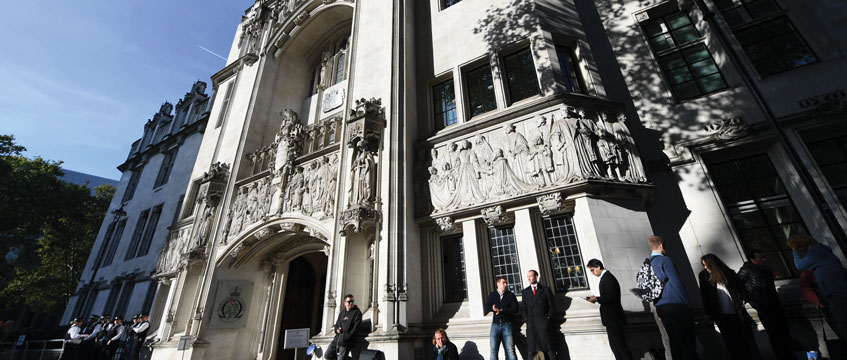The Supreme Court today backed landlords in a case about the recalculation of service charges.
The court upheld an argument by landlords Aviva Investors Ground Rent GP Ltd and Aviva Investors Ground Rent Holdco Ltd that the service charge provision in the leases of a number of flats in Hampshire are not limited to the specific percentages stated but can be varied if necessary.
The ruling gives the landlords more flexibility to adjust service charges than they were given in an earlier Court of Appeal ruling. The lower court judges had said landlords should apply to specialist property court the First-tier Tribunal (FTT) to make adjustments.
However, the Supreme Court said today that this would be impractical and overburden the FTT with requests.
Instead of obliging landlords to go to the tribunal, tenants should take legal action against rises they considered to be unfair.
“The levying of service charges by landlords under leases of residential property in respect of their expenditure upon repairs and the provision of other services has for long been controversial,” Lord Briggs, wrote in today’s ruling.
“This is both because of its propensity to generate disproportionately expensive and time-consuming litigation and because of the tendency of some landlords to seek to minimise that risk by the imposition of contractual restrictions in residential leases upon what would otherwise have been the tenants’ rights to have disputes about service charges resolved in court, or in an appropriate tribunal.”
Today’s ruling sought to address these points.
The case concerned a number of flats in Southsea, Hampshire, that form part of a mixed residential and commercial development. The development was once in common ownership, but that is no longer the case – which the court said gave rise to the current problem.
The service charge contained in each of the relevant leases consists of three components; insurance costs, building services costs and estate costs, with the wording in the example lease (flat 64) stating:
- your share of the insurance costs is 0.7135% or such part as the Landlord may otherwise reasonably determine;
- your share of building services costs is 0.7135% or such part as the Landlord may otherwise reasonably determine; and
- your share of estate services costs is 0.5427% or such part as the Landlord may otherwise reasonably determine.
For some years the landlord had been demanding service charges in different proportions from the leases, relying on the phrase “or such part as the Landlord may otherwise reasonably determine”, which was referred to as “the reapportionment provisions”.
The leaseholders challenged this in court, saying the Landlord and Tenant Act of 1985 made the reapportionment provisions void. The case flip-flopped though the court system until the Court of Appeal ruled that the Landlord and Tenant act meant the FTT had the power to alter the percentages that governed the service charges.
The leaseholders again appealed, this time to the Supreme Court. They again argued the proportions should not be changed.
The Supreme Court rejected this, saying it would be uncommercial to set in stone the proportions on a lease that lasted 125 years.
The court also said handing the power to change the charge to the FTT would not only overburden it with requests, it would also be uncommercial as it would give the FTT the power to make changes the landlord had never expected.
Instead, the FTT should rule on disputed cases according to the contract governing each agreement.
“There is, in short, all the difference for a landlord between facing a regime under which the FTT has freedom to make a completely different discretionary decision from that made by the landlord, and one where the jurisdiction of the FTT is limited to deciding whether the landlord acted in breach of contract or in contravention of the statutory scheme regulating residential service charges,” Lord Briggs said.
Brooke Lyne, who represented the landlords, said the ruling was “huge for residential leaseholder”.
“It will affect hundreds of thousand of leaseholders and landlords across the country.”
The decision means there will be fewer disputes about the apportionment of leasehold service charges, or indeed other management functions reserved to landlords in leases, because the role of the tribunal is one of review only.
She said property mangers and landlords would be relived to learn that charges carried out under the terms of the lease will can now not be remade afresh by the FTT.
She added that the ruling effectively resets the law back to what it was before the 2014 case Windermere Marina v Wild.
Aviva Investors Ground Rent GP Ltd and another (Respondents) v Williams and others (Appellants)
Supreme Court (Lord Reed, Lord Briggs, Lord Kitchin, Lord Sales, Lord Richards) 8 Feb 2023








